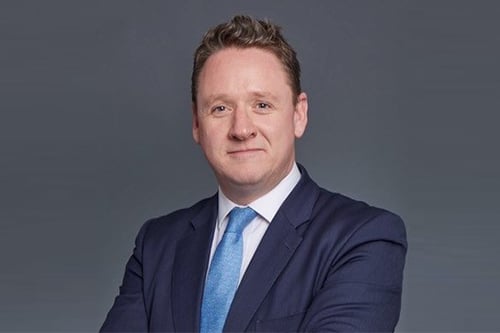

There are few people who can say that they have always wanted to join the insurance industry and Derek Henry (pictured), the managing director of broking at Brightside Insurance, does not count himself among their ranks. A self-professed petrol head, it was his love of cars that led Henry, who is an accountant by training, to join the RAC and from there he fell into the insurance business and has not looked back since.
Read more: Brightside Group shakes up executive team
“It’s just one of those things that ends up being what you do, and I love it,” he said. “I really enjoy the market; I enjoy the business. I love the cut and thrust of it, and the competitiveness of it. And I’ve done so many different jobs in insurance and in different parts of the market, but this is what I do now, and I can’t really see myself doing anything else.”
Through his current role, and having worked almost exclusively in the broking sector, what Henry enjoys the most about being a broker is the drive to find his clients the right solutions. A broker’s job revolves around customer outcomes, he said, and finding a solution that matches their requirements, and for him that is the best part of the job. What Brightside excels in is focusing on “everyday people with everyday differences” and looking after customers who require more niche insurance services and products.
Having this proposition, which requires an emphasis on customer care and building powerful customer relationships, has served Brightside well during the COVID-19 crisis, Henry noted, with the Trustpilot scores of the business higher than ever. This has been particularly pleasing as Brightside was not one those of businesses which were fully set up to work remotely before the pandemic hit. It was to the credit of the entire management team and staff that the business was able to make a swift and smooth change to home working.
Among the key changes that the pandemic has placed on businesses within the UK, there has been a real shift in the communication styles adopted by business leaders. As a committed people person, Henry said, who spends as much of his time as possible building strong interpersonal relationships with his clients and his staff, the pandemic has created a need to find new channels through which to continue these relationships.
“With Teams for instance, there’s a full chat functionality which makes it a little more like a social environment,” he explained. “And most of our agents are much younger than I am, and they love these chat functions, and they’re all used to WhatsApp and texting and the like so, we use chat a lot to talk to our people… People like that informal communication more than the formal kind.”
Henry is especially passionate about helping create an accessible route for young people to enter the insurance industry. As somebody who benefited from several breaks in the early days of his career, and who was able to translate these into a rewarding vocation through hard work and sometimes just being in the right place at the right time, making those same opportunities available to upcoming talent is essential.
How to create a pipeline of young talent into the insurance sector is a question which has gained significant traction in recent years and Henry noted that part of the answer is tied to the image of the industry. Many young people think of insurance as a faintly disreputable industry which doesn’t pay claims, and nothing could be further from the truth. Others, meanwhile, are profoundly unaware of the sheer variety of roles which exist within the sector – from analytical positions to marketing positions to sales positions and so much more.
“There’s no more competitive market in the world to try and cut your teeth in, and to try and fight for customers, than in car or home or SME insurance,” he said. “If you really want to work with marketing or finance or factories or animals, or in general management, then you’ve got a real opportunity to really learn about these businesses and gain some great skills that you can apply to a lot of different financial services. So, it’s about getting the message out there to people that these career opportunities are so much wider than sitting down adding up claims numbers all day. It’s just a massive business.”
